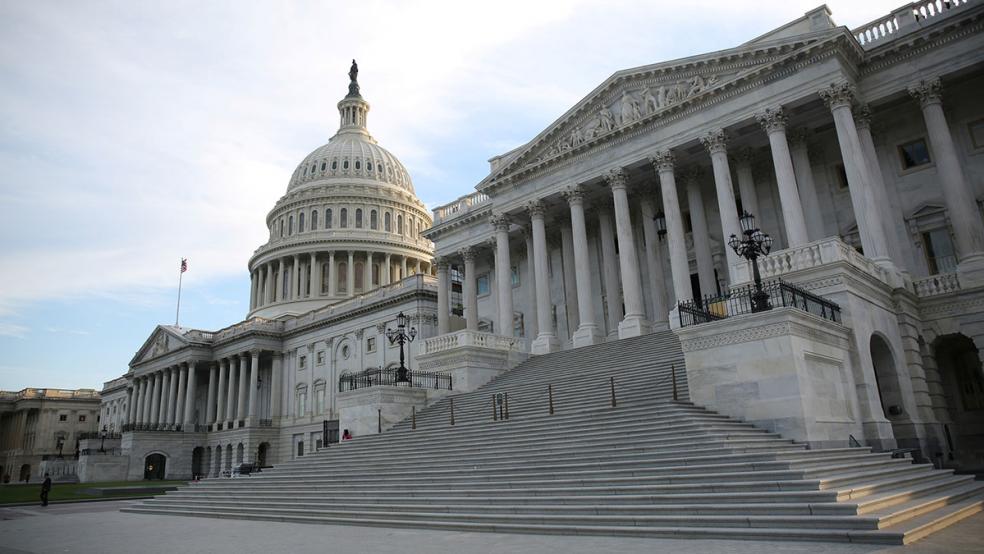Senate Republicans released their long-delayed annual spending bills on Tuesday, setting the stage for what may be complex negotiations with Democrats ahead of a December 11 deadline, when current stopgap government funding is set to expire.
The 12 appropriations bills “reflect significant differences between Senate Republicans and House Democrats on spending levels as well as policy riders that address everything from family planning grants to military installations named for Confederate officers and border wall funding,” Roll Call’s Jennifer Shutt reports:
“Senate Republicans made some strategic reductions from bills introduced by their House Democratic counterparts to fund the departments of Veterans Affairs, Interior, EPA, Transportation and Housing and Urban Development.
“Instead, they'd put that money towards higher levels for Defense, Homeland Security, Energy and the Army Corps of Engineers than the House would prefer.
“Senate Republicans appear to give the biggest domestic spending bill, for the departments of Labor, Health and Human Services and Education, more money than the House version. But that's before the addition of $24.4 billion in pandemic-related emergency spending House Democrats tacked on, part of a nearly $250 billion overall pot of add-ons sprinkled throughout the bills Republicans say violate last year's budget deal.”
The background: An earlier deal between the Trump administration and Congress set the discretionary budget for fiscal year 2021 at $1.298 trillion, with $671.5 billion for defense and $626.5 billion other programs. House Democrats passed 10 of the required 12 annual spending bills along partisan lines earlier this year.
Democratic objections: Sen. Patrick Leahy of Vermont, the top Democrat on the Senate Appropriations Committee, quickly raised some objections to the new Republican bills, including the lack of emergency pandemic-relief funding.
“Many of the bills were the result of bipartisan work, and I appreciate those areas where we were able to come to agreement,” he said in a statement. “However, there are significant issues that we will want to address in negotiations with the House. The first is the need to address the coronavirus crisis in this country.”
Leahy also objected to what he called “nearly $2 billion in wasteful spending” on Trump’s border wall; proposed spending levels for health, education, child care and environmental protections; language limiting funding for family planning; and funding levels for immigration detention.<
Uncertainty abounds: The ongoing uncertainty over which party will control the Senate, with two Georgia seats slated for runoff elections on January 5, could color the negotiations, as could the stalemate over a coronavirus relief package. Democrats, guided by President-elect Biden, may also prefer not to pass full-year funding bills, instead giving the new administration a chance to put its stamp on spending priorities. But the likelihood that Republicans will control the Senate after those runoffs may give Democrats more incentive to settle the spending bills and clear the decks for Biden.
Trump again a wild card: The president, always unpredictable, could further complicate the talks, through both his efforts to challenge the election results and potential objections to the process or details of the legislation. “Whether President Donald Trump’s lame-duck administration will engage in those negotiations, or whether he’ll want to sign any spending bills, period, remains unknown,” Roll Call’s Shutt writes.
The White House has reportedly instructed officials not to cooperate with the Biden transition team and Trump’s budget office has told federal agencies to continue preparing the administration’s budget proposal for fiscal year 2022, which begins next October. The president’s budget would typically be released in February, weeks after Trump is scheduled to leave office. Asked by The Washington Post if the fiscal 2022 budget process was proceeding as planned, a spokesperson for the White House budget office said, “Of course.”





